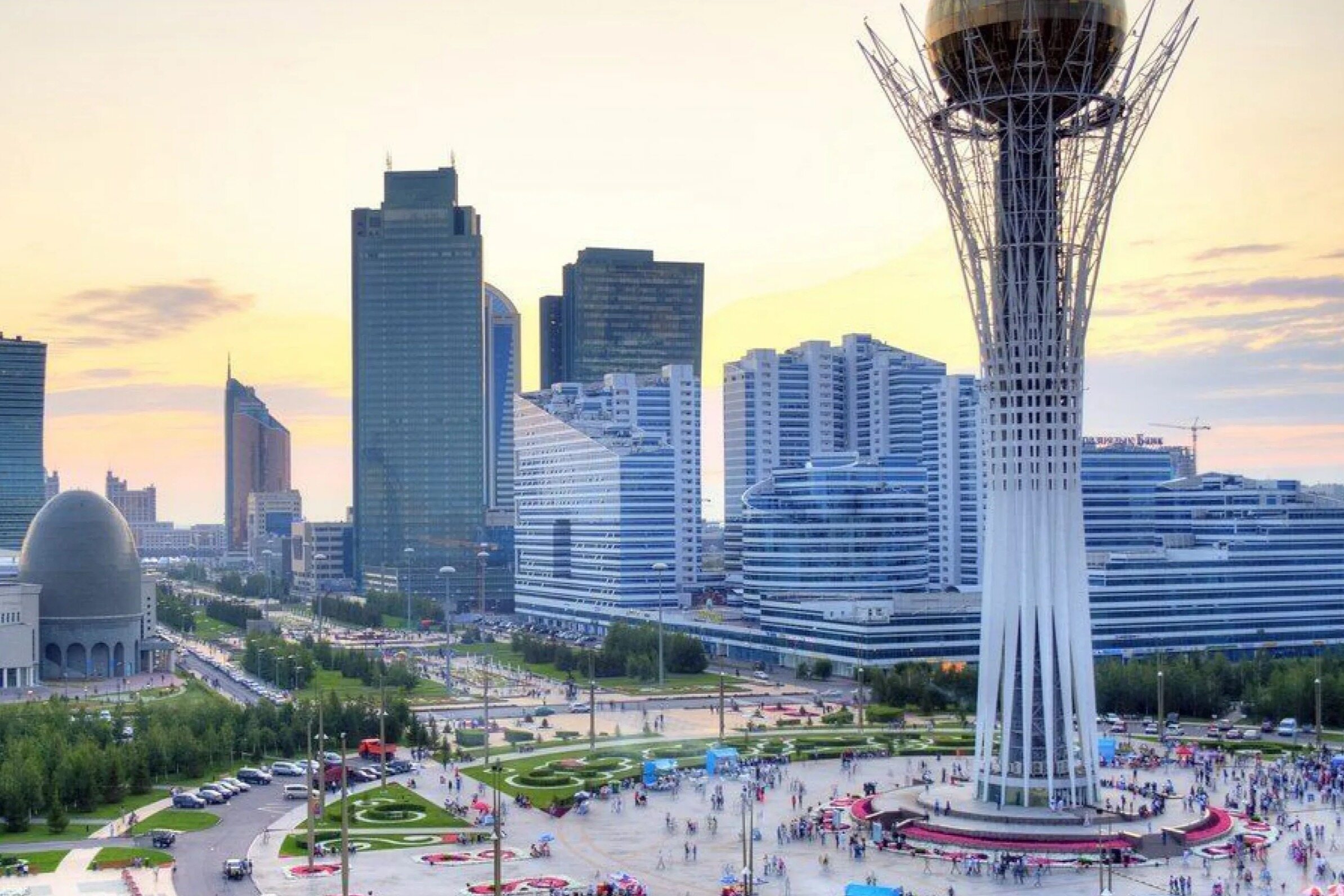- After 30 years of development, the cooperation between China and Central Asian countries continues to expand
- The transportation potential of Central Asia is fully released, highlighting its unique value as a strategic channel connecting the East and the West

From September 14 to 16, 2022, President Xi Jinping was invited to pay state visits to Kazakhstan and Uzbekistan, and attended the 22nd meeting of the Council of Heads of State of the Shanghai Cooperation Organization in Samarkand. Since the outbreak of the new crown pneumonia, Xi Jinping chose Central Asia for his first visit. As he said, China and Central Asian countries are a community with a shared future that is interdependent and shares safety and security.

Why are China and Central Asian countries so important to each other? What cooperation potential can be unleashed in the future? Deng Hao, Secretary-General of the China Shanghai Cooperation Organization Research Center, said in an exclusive interview that factors such as living adjacent to each other, the long-standing "Silk Road" connection, and highly complementary economic characteristics make China and Central Asian countries important to each other's needs. partner. Under the multiple crises such as the epidemic and geopolitical conflicts, the willingness of Central Asian countries to cooperate with China is increasing. The two sides should further intensify high-level exchanges, strengthen people-to-people exchanges and the construction of cooperation mechanisms, and make the cooperation between China and Central Asian countries a solid reality.
Central Asia's strategic position in security, energy and transportation plays a pivotal role
Reporter: President Xi Jinping chose Central Asia for his first visit after the epidemic. In 2013, the Belt and Road Initiative was first proposed in Central Asia. Why is Central Asia so important in China's peripheral strategic layout?
Deng Hao: The five Central Asian countries are all newly independent countries after the disintegration of the Soviet Union. Three of them border China. Our common border reaches more than 3,300 kilometers. For the peripheral security of western China, it is very important to properly handle relations with Central Asian countries.
Central Asia is a very resource-rich region, and it has huge complementarity with China in terms of resources. Energy is the most important resource of Central Asian countries and plays an important role in China's modernization drive. Over the past 30 years since the independence of Central Asian countries, great achievements have been made in energy cooperation between China and Central Asia. Central Asia is an important source of energy supply outside China.

In the entire Eurasian continent, Central Asia is on the main road connecting the East and the West, and its strategic position is very important. Therefore, Central Asia has become the first place for the joint construction of the Belt and Road Initiative. Through the construction of the Belt and Road connectivity, China has also further opened up the land link with Europe. Especially under the new crown epidemic, the transportation corridor in Central Asia has become a "steel corridor" and "lifeline", which provides an important guarantee for China's smooth external relations and trade connections between countries.
China can greatly help Central Asian countries to modernize
Reporter: China and Central Asian countries have established close cooperation mechanisms under the framework of the "China + Five Central Asian Countries" mechanism and the Shanghai Cooperation Organization. sub-community of destiny. Why do Central Asian countries attach great importance to cooperation with China?
Deng Hao: From a historical point of view, the ancient Silk Road has closely linked China and Central Asia. Merchants and goods from the East and the West frequently traveled through Central Asia, and Central Asia became an important channel for the exchange of ancient Eastern and Western civilizations.
From now on, the Central Asian countries and China are neighbors, and they are geographically connected, and China can provide the Central Asian countries with access to the sea. Traffic congestion and lack of access to the sea have always been obstacles to the economic development of Central Asian countries. With the promotion of the Belt and Road Initiative, the transportation potential of Central Asia has been fully released, highlighting its unique value as a strategic channel connecting the East and the West, and beginning to realize the dream of leading to the blue ocean. The China-Kazakhstan Lianyungang Logistics Cooperation Base is a good example, which can transport goods from Kazakhstan to more countries through the port.

China and Central Asian countries are highly complementary economically. China is the world's second largest economy with sufficient capital, advanced technology and rich experience in modernization. China's advantages complement the resource endowments and development needs of Central Asian countries. In the process of modernization of Central Asian countries, China can provide great help.
The reason why Central Asian countries are willing to cooperate with China lies in the fact that China has long adopted a neighboring foreign policy of good neighborliness, peace and prosperity towards Central Asian countries. While pursuing win-win cooperation, it never interferes in the internal affairs of Central Asian countries, never imposes our model, but sincerely hopes to help them develop and provides a lot of assistance to Central Asian countries. Such a diplomatic concept has also won the favor of Central Asian countries, making them willing to strengthen cooperation with China.
There is still huge potential for China-Central Asia cooperation in various fields
Reporter: In addition to traditional cooperation fields such as logistics and energy, what areas can China and Central Asia further expand cooperation in the future?
Deng Hao: After 30 years of development, the cooperation between China and Central Asian countries has continued to expand, and there is still great potential for cooperation.
In the post-epidemic era, the construction of the "Healthy Silk Road" has great potential. China and Central Asian countries have carried out good anti-epidemic cooperation in recent years, which can be further deepened. Soft and non-traditional security threats such as epidemics and natural disasters will pose more and more threats to Central Asian countries, become serious security challenges, and can also become important areas of cooperation between the two sides.
At present, all countries advocate the development of green economy and low-carbon economy. Central Asian countries with a resource-based economy will also embark on the road of energy transformation, and China has been at the forefront of the world in the development of new energy. This field can become a new growth point for economic cooperation between China and Central Asian countries. The same is true for the digital economy, which has become an important priority for cooperation between China and Central Asian countries.
In addition, China has completed the historical task of eliminating absolute poverty. Many countries in the world, including Central Asian countries, are very interested in China's experience in poverty reduction, and the prospects for cooperation in this area are also very promising.
Under multiple crises, Central Asian countries and China are more willing to cooperate
Reporter: The epidemic and geopolitical confrontation have brought about major changes in the international landscape. The conflict between Russia and Ukraine, the "January Incident" in Kazakhstan, the Gorno-Badakhshan riot in Tajikistan and the Karakalpak riot in Uzbekistan, and the changing weather in Afghanistan, etc. Shock the stability of Central Asia. Under the new situation, how will the cooperative relations between China and Central Asian countries be stable and far-reaching?

Deng Hao: Although the current cooperation between China and Central Asian countries has encountered some challenges and difficulties, it is actually an opportunity in crisis. While the epidemic has not yet ended and the crisis in Ukraine continues, the desire for cooperation between Central Asian countries and China has not diminished, but has increased.
With the intensification of multiple crises, the Central Asian countries are facing new and severe challenges in both the economic and security fields. How to maintain regional stability? How to get the economy out of trouble? Central Asian countries are thinking positively. Leaders of Central Asian countries are aware that in order to achieve stability and economic recovery in Central Asia, they must strengthen cooperation with China.
Under the crisis, the cooperation between China and Central Asian countries has gained new impetus and injected new vitality. In order to ensure the stable and long-term development of bilateral relations, China and Central Asian countries should not be satisfied with the status quo, but should stop at a time, aim at the shortcomings of cooperation, give full play to their experience and advantages, and further improve the cooperation between China and Central Asian countries.
First, the two sides should strengthen strategic communication and docking, and maintain close high-level exchanges. The important experience of China and the Central Asian countries in the past 30 years is the leadership of the heads of state, which has played a key role in the development of the relations between China and the Central Asian countries. In the future, the two sides should strengthen frequent exchanges of leaders and close political cooperation to achieve a more perfect strategic docking.
Secondly, in the past 30 years, the official and non-governmental exchanges between the two sides have been extremely unbalanced, the social and non-governmental exchanges are far from enough, and the people's understanding of each other is not enough. China's economic influence in Central Asia is already unique, but what does not match the strong economic influence is the influence in the cultural field. In the future, the two sides should strengthen people-to-people bonds. For the relationship between the two sides to go steadily and far, there must be a sound social and non-governmental foundation.

Third, in addition to many specific cooperation projects, China and Central Asian countries should strengthen the construction of cooperation systems and mechanisms, so as to bring strong institutional guarantees to cooperation. At present, the two sides already have good cooperation mechanisms such as "China + Five Central Asian Countries", the Shanghai Cooperation Organization and the CICA. The video summit on the 30th anniversary of the establishment of diplomatic relations between China and the five Central Asian countries held on January 25 this year was the first head of state-level meeting held between China and the five Central Asian countries. We should make good use of these mechanisms and further strengthen the construction of cooperation systems and mechanisms. Only by establishing a strong institutional guarantee can it withstand the test of wind and rain. Editor / Xu Shengpeng
Comment
 Praise
Praise
 Collect
Collect
 Comment
Comment
 Search
Search














Write something~